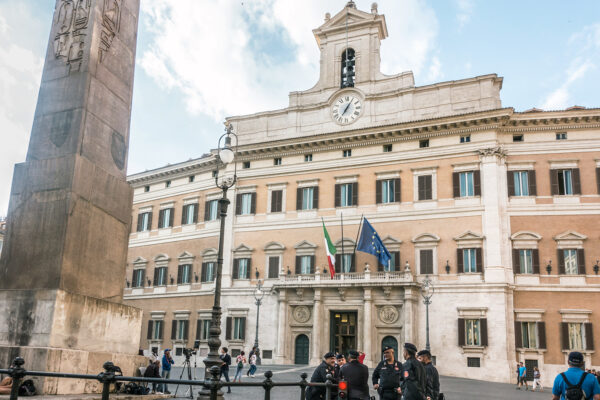
Italy’s populist Five Star Movement and (formerly Northern) League have finalized a coalition agreement.
Among their policies are:
- Reducing personal and business taxes to two rates: 15 and 20 percent.
- A €780 monthly basic income for poor families.
- Repealing 2011 pension reforms that raised the retirement age and made the system financially sustainable.
- Withdrawal of EU sanctions on Moscow.
- Speeding up the deportation of around 500,000 immigrants.
The final version of the text does not call for a pathway for countries to leave the euro, nor does it call on the European Central Bank to cancel €250 billion in Italian debt. These proposals had been in leaked drafts.
However, the planned fiscal measures will almost certainly cause Italy to break the EU’s 3-percent deficit ceiling.
What’s next?
- The parties have yet to agree on a candidate for prime minister.
- The Five Stars will poll their supporters online about the deal. The League plans to sound out its base across town squares on Saturday.
- President Sergio Mattarella must formally approve the agreement, but a president hasn’t rejected one in sixty years.
- Once a cabinet is assembled, it will be subject to a confidence vote in both houses of parliament.
Possible prime ministers
Politico lists the contenders:
- Luigi Di Maio: As leader of the largest party, he has the strongest claim. The League objects, though, arguing it would give the Five Stars too much power.
- Alfonso Bonafede: A close ally of Di Maio’s. Has built a reputation as the Five Stars’ fixer.
- Vincenzo Spadafora: Is described by Italian media as the éminence grise of the Five Star Movement.
Implications for Europe
- The Five Stars’ and League’s opposition to sanctions, and sympathy for Russia, threatens the bloc’s already fragile consensus on how to treat Vladimir Putin’s regime.
- As Alessandro Gagaridis argued here yesterday, a Euroskeptic Italian government would deprive French president Emmanuel Macron of an ally for EU reform. Closer eurozone integration is now unlikely.
- Neither party supports free trade. This at a time when the EU has stepped up its defense of open commerce in response to the protectionism of America’s Donald Trump.
